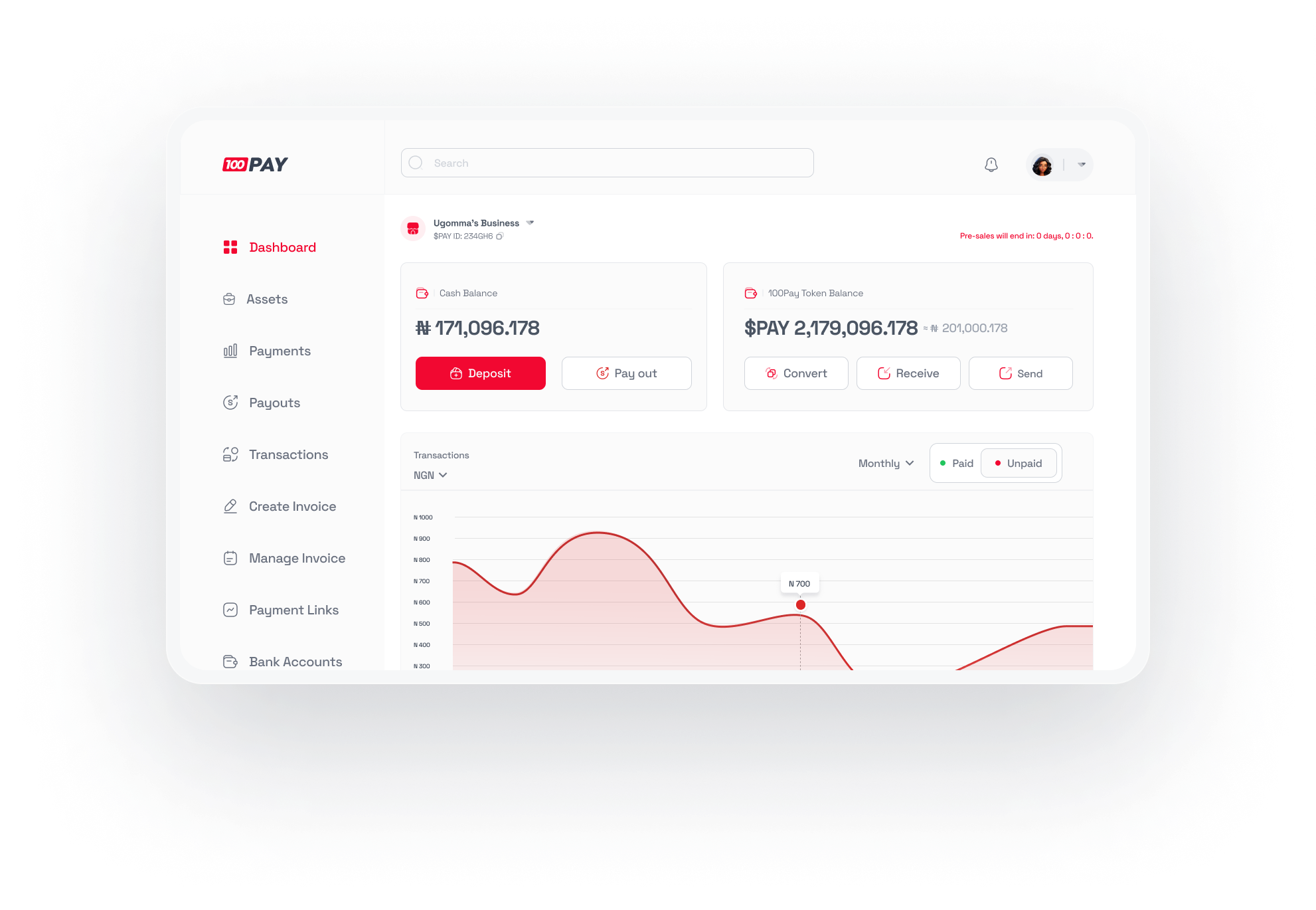AML Policy
100Pay Anti–money laundering Policy
Anti-Money Laundering (AML) Policy
1. Introduction
This Anti-Money Laundering (AML) Policy sets forth the policies and procedures that 100Pay (hereafter referred to as "the Company") will follow to ensure compliance with applicable anti-money laundering laws and regulations. The Company is committed to detecting and preventing the misuse of its services for the purpose of money laundering, terrorist financing, or other illegal activities.
2. Purpose
The purpose of this AML Policy is to protect the Company, its customers, and its partners from being used, intentionally or unintentionally, by criminal elements for illegal activities such as money laundering and terrorist financing. This policy outlines the Company’s processes and procedures for monitoring, detecting, reporting, and managing risks related to money laundering.
3. Scope
This policy applies to all employees, customers, partners, and service providers of the Company. It covers all products and services offered by 100Pay, including but not limited to the processing of cryptocurrency transactions, fiat-to-crypto conversion services, and wallet management.
4. Legal and Regulatory Framework
100Pay will comply with the relevant international AML regulations, including:
- Financial Action Task Force (FATF) guidelines
- Relevant domestic laws and regulations concerning AML and Counter-Terrorist Financing (CTF)
- Recommendations from national regulatory bodies
5. Definitions
- Money Laundering (ML): The process of making illegally-gained proceeds appear legal.
- Terrorist Financing (TF): The process of providing financial support to terrorist activities.
- Customer Due Diligence (CDD): The process of verifying the identity of the customer and assessing the risks associated with the customer.
6. Roles and Responsibilities
6.1. Board of Directors
The Board of Directors has the ultimate responsibility for ensuring that 100Pay has an effective AML framework. They are responsible for reviewing and approving the AML Policy annually.
6.2. Compliance Officer
The Company will appoint an AML Compliance Officer, who will oversee the implementation and enforcement of this AML policy. The Compliance Officer’s responsibilities include:
- Ensuring compliance with AML regulations.
- Training staff on AML requirements.
- Monitoring suspicious activity.
- Reporting to relevant authorities.
6.3. Employees
All employees must be aware of the AML Policy and procedures. They are required to report any suspicious activity to the AML Compliance Officer.
7. Customer Due Diligence (CDD) and Know Your Customer (KYC)
7.1. CDD Requirements
100Pay will perform CDD at the time of establishing a business relationship and before processing any transactions. The CDD process will include:
- Verifying the customer’s identity using official documentation.
- Understanding the purpose and nature of the customer’s relationship with the Company.
- Assessing the risk level of the customer based on predefined criteria (e.g., geographic location, transaction type, etc.).
7.2. Enhanced Due Diligence (EDD)
For high-risk customers or transactions, 100Pay will implement Enhanced Due Diligence procedures. This will include obtaining additional information about the customer, monitoring their transactions more closely, and applying stricter verification processes.
8. Monitoring and Reporting
8.1. Ongoing Monitoring
The Company will monitor customer transactions on an ongoing basis to detect any unusual or suspicious activity. This includes setting up automated alerts for:
- Unusual transaction patterns.
- Large or rapid movement of funds.
- Transactions originating from or going to high-risk jurisdictions.
8.2. Suspicious Activity Reporting (SAR)
The Company will file Suspicious Activity Reports (SARs) with the relevant authorities if any transaction or behavior appears suspicious. Employees must report any such suspicious activities to the AML Compliance Officer immediately.
9. Record-Keeping
100Pay will maintain comprehensive records of all transactions, CDD/KYC documentation, and reports of suspicious activity for a minimum period of five years or as required by local regulations.
10. Training and Awareness
The Company will provide regular AML training to all employees. This training will include information on identifying suspicious activity, reporting requirements, and understanding AML laws and regulations.
11. Risk Assessment
The Company will regularly assess the risks of money laundering and terrorist financing in relation to its products and services. A risk-based approach will be used to determine the level of due diligence required for different types of customers and transactions.
12. Sanctions Compliance
The Company will comply with all applicable sanctions lists, including those maintained by:
- The United Nations (UN)
- The European Union (EU)
- The United States Office of Foreign Assets Control (OFAC)
13. Policy Review
This AML Policy will be reviewed annually by the Board of Directors and the AML Compliance Officer to ensure its effectiveness and compliance with evolving regulatory requirements.
Send us a message & we will make it possible for you!
Get Started with 100pay for free — 0% fees
Create payment links and invoices you can receive crypto payments with at 0% fee.



